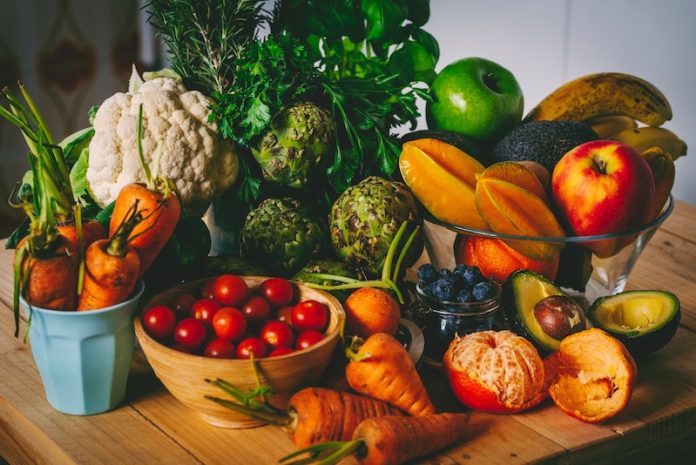
Depression and anxiety are common mental health disorders affecting millions of individuals globally. These conditions can greatly impact one’s quality of life, making everyday tasks seem insurmountable.
While therapy and medication are traditional treatments, studies have shown that incorporating specific foods into our diet can also play a significant role in managing symptoms of depression and anxiety.
Omega-3 Rich Foods: Brain-Boosting Good Fats
Omega-3 fatty acids are crucial for brain health and have been found to have a positive impact on mood and emotional well-being.
Research has demonstrated that people who consume a diet high in Omega-3 fatty acids have a lower incidence of depression and anxiety.
Foods rich in these essential fats include fatty fish like salmon and mackerel, flaxseeds, chia seeds, and walnuts. By incorporating these foods into your diet, you might experience improved mood and reduced anxiety levels.
Fruits and Vegetables: A Rainbow of Mood Enhancers
Fruits and vegetables, especially those rich in colors, are packed with various vitamins, minerals, and antioxidants which are essential for optimal brain function and mental well-being.
Studies suggest that a diet high in a variety of fruits and vegetables can help combat depressive symptoms. Particularly, leafy greens, berries, and bananas are considered excellent options.
They not only provide essential nutrients like folate, vitamin C, and potassium but also contain compounds that help in the production of serotonin, the “feel-good” neurotransmitter.
Probiotic-Rich Foods: Gut-Feeling Connection
There’s a growing body of evidence supporting the connection between gut health and mood. The gut is often referred to as the “second brain,” and it’s believed that a healthy gut can promote a healthy mind.
Probiotic-rich foods, which help in maintaining a balance of good bacteria in the gut, have been associated with improved mood and reduced anxiety.
Foods like yogurt, kefir, sauerkraut, and other fermented products can be included in the diet to support gut and mental health.
Conclusion
Balancing your diet with Omega-3 rich foods, colorful fruits and vegetables, and probiotic-rich foods can be a simple yet effective way to support mental well-being and reduce the symptoms of depression and anxiety.
Regular physical activity, adequate sleep, stress management, and staying hydrated are also crucial components in managing mental health conditions.
Practical Tips
- Include fatty fish, flaxseeds, or walnuts in your meals for a dose of Omega-3s.
- Consume a variety of colorful fruits and vegetables daily.
- Add probiotic-rich foods like yogurt or kefir to your diet to support gut health.
Before making significant changes to your diet, it is important to consult with a healthcare or mental health professional or a dietitian, especially if you are dealing with severe or chronic mental health conditions.
They can help tailor dietary recommendations to your individual needs and ensure they are appropriate based on your overall health status.
Final Thoughts
Eating the right foods isn’t a cure-all for depression and anxiety, but it can certainly play a significant role in managing the symptoms and improving overall well-being.
Remember, the goal is to create a balanced, sustainable eating pattern that supports both your physical and mental health.
Small, steady changes to your diet can lead to long-lasting improvements in mood and a more joyful, serene life.
Follow us on Twitter for more articles about this topic.
Copyright © 2023 Scientific Diet. All rights reserved.





